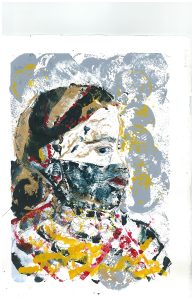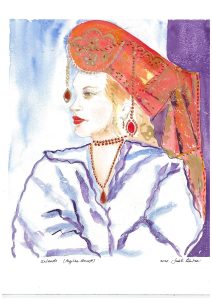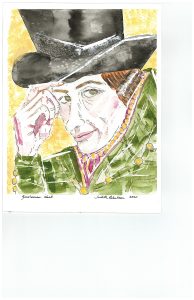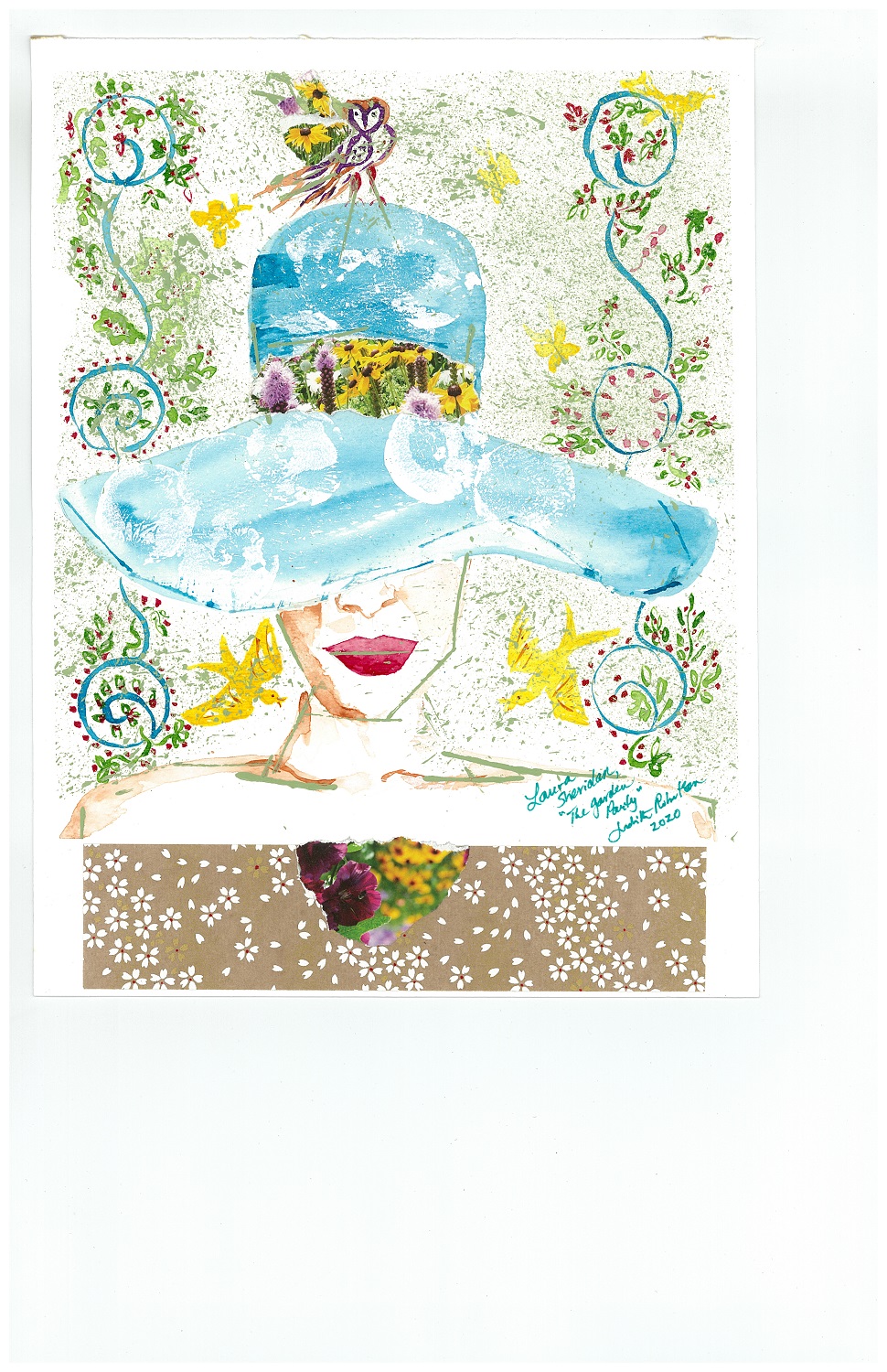Judith Robertson—Artist, Poet, Educator
By Iris Winston
Inspired and inspiring, Judith Robertson has worn many hats through a stellar career as an educator, a poet and an artist.

Now focusing on her art, her career in education spanned 30-plus years, as a school teacher, an educational consultant and a university professor. A full professor in the University of Ottawa’s faculty of education, she won the prestigious Award for Excellence in Teaching five times before her retirement.

“I had quite a run of acknowledgments of exemplary teaching,” she admits. “Once the faculty has a couple of binders about you, it’s easier to put your name forward.”
Soon after retiring from academic life, Judith and her husband, Allan, moved to the southern shore of Newfoundland. This was where she became a published poet, writing many works celebrating her “transition from academic life and the tumult of falling in love with [the] stunning island in the North Atlantic.”

Medical issues eventually forced the couple out of their island retreat after Judith was diagnosed with meningioma (a type of brain tumour more common in women). However, the move back to Ottawa did not happen until some time after her first successful surgery.
“I had my first craniotomy in 2015 and more or less sailed through it,” she says. “I was 64 years old and the recovery time was very fast. In fact, my son and his now-wife were married on our lawn in Newfoundland three weeks after the surgery and I was able to attend the wedding, walk through the garden in which we held it and give a speech at the reception.”
When the cancer recurred in 2021, she expected the results of the second surgery to be as positive as the first.
“I was a textbook case,” she notes. “Atypical meningiomas are aggressive and unpredictable and have a history of growing back, usually within six years.”
So it was for Judith, who had had massive radiation treatment after her first surgery that had apparently weakened the vascular system to the brain and made the second brain surgery more dangerous. In the week following this operation, she had an ischemic stroke that left one side of her body paralyzed.

“It was a shock to be without the reliable use of half of my body and obviously very difficult to face,” says Judith, who now spends much of her time in a wheelchair. “But I do understand that I’m not alone in what has befallen me. It has provoked me to find within myself the capacity to fight back. To the extent that it’s possible, I do what I can to be brave, kind and elegant and get on with it.
“Obviously, it’s a terrible thing to wake up paralyzed,” she says. “I couldn’t hold a pen. I couldn’t hold a phone, but I’m blessed in many ways. My situation is through the deep and abiding love of my husband — he told me that we’re in this together — friends and family and a wonderful team of personal support workers and doctors.”
Despite the support, the “anguish, grief and sense of loss that accompany acquired brain damage and stroke” remain. For example, she says, “trying to navigate my wheelchair into the kitchen, crashing into a wall of pots and pans and spilling a container of water” can lead to tears.
But, most of the time she focuses on what she has rather than what she has lost. “Though life is more challenging than it was before [the stroke], I didn’t lose my speech. I didn’t lose my capacity to write or express myself or to paint.”
It is painting, she says, that has seized her soul, just as education and poetry did in previous times.
As a painter, she has sold some of her works and donated others to raise money for cancer research. One project, entitled Women Who Wear Hats raised over $2,000 to support brain cancer research at Toronto’s Princess Margaret Cancer Centre, (previously called Princess Margaret Hospital) where Judith had her radiotherapy treatments.
As well as the 10 paintings that comprise Women Who Wear Hats, the series is accompanied by postcard prints of the 10 women in the paintings. The subjects, selected from various eras: Alyce, the Wife of Bath from Geoffrey Chaucer’s Canterbury Tales; Queen Elizabeth 1; Anne Lister of Shibden Hall; Felice Bauer; poet Dorothy Parker; author Vita Sackville West; Angela Garnett; Laura Sheridan; Frida Kahlo; and Adele Huenel. Each of them “had struggled courageously with trauma,” notes Judith, adding that she frequently finds inspiration in literature
“I’ve had many different lives, with many high and low points,” says Judith who is currently tumour-free. “Like a phoenix going from one to another and rising again.”
Her work as an artist continues. Her ability to walk a few more steps each day is a work in progress.
The Women Who Wear Hats postcards, at $49 for a set of 10, are available by contacting the artist via email at jrobert@uottawa.ca.







